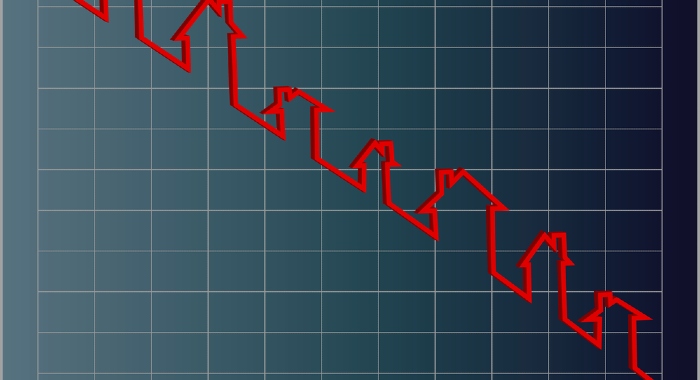Property sales are failing at their fastest rate in two years, obstructed by logistical delays, economic chaos and cladding.
As the disruption caused by the pandemic and the cladding crisis bites, the number of property sales that collapse is rising fast. As a result, buyers stand to miss out on tax savings worth up to £15,000. According to the property website Rightmove, excessive delays and economic woe meant the share of agreed sales that failed rose from 17pc in July to 28pc in December.
This is the highest figure in 24 months, apart from a peak in March 2020, when buyers became jittery and backed out of deals after the first lockdown began.
In the normal course of events, abandoned deals tend to spike before Christmas. But last month’s jump is significant because of the much greater number of transactions currently taking place as buyers rush to complete before the stamp duty holiday ends on March 31. All this means failed transactions are affecting far more people than usual.
According to property portal Zoopla, the pipeline of agreed sales was up 32pc year-on-year at the end of 2020, which means there are now 100,000 more sales in the pipeline than normal.
Logistics, economy and cladding delay sales
Buyers face a triple whammy of obstacles. First, the property buying system has succumbed to enormous pressure due to huge logistical delays. Unheard of demand along with a shift to working from home have exacerbated the problem.
Duncan Ley of Humberts estate agents in Cornwall states that whereas the conveyancing process would normally take eight to twelve weeks, ‘now it is easily twenty weeks’. Local authority searches that used to take a few days now take up to twelve weeks, he says. The firm most likely saw a 20pc increase in fall-throughs from November to December, he adds.
The second major problem is the gloomy economic outlook, which is constricting the mortgage market further for many potential buyers. While some can no longer obtain a loan, fewer lenders will offer mortgages to buyers on furlough.
In some cases, banks have withdrawn mortgage offers in principle when buyers’ jobs have been affected by new lockdown restrictions, says Chris Sykes of mortgage broker Private Finance.
A third problem is growing alongside the pandemic. In the wake of the Grenfell Tower disaster, problems with cladding and the requirement for external wall safety forms have led to an increase in collapsing flat sales. According to the New Build Database, an industry analyst, as many as 4.6m homeowners could find that their property is unmortgageable.
The cumulative uncertainty, coupled with the stamp duty holiday’s cliff edge, presents a major challenge to the market this year. Mr Ley believes there is a risk in February and March that buyers and sellers will come to realise they will miss the stamp duty holiday and withdraw.
Tax holiday not main reason for buying property
Richard Donnell of Zoopla expects that in addition to those sales already in the pipeline, many more buyers will race to do deals this month in the hope of taking advantage of the tax break. But they will face a challenge, he adds, saying that only half the deals agreed this month are expected to complete before the end of March.
Zoe Melarkey of online estate agent Purplebricks points out that if buyers miss the deadline, the company could see people trying to renegotiate prices across the whole chain and others simply won’t be able to afford to move.
High net-worth mortgage broker, Enness Global, polled 1,000 current home buyers to discover to what extent the stamp duty holiday has helped to boost the market.
Survey participants were asked whether they had decided to buy a property because of the tax break, and if so, whether they were concerned their sale wouldn’t complete in time due to the backlog.
Despite the tax holiday being the main reason for the recent explosion of activity in the housing market, only 25pc of home buyers stated it was the prime motive for their decision to buy, with 71pc buying for other reasons.




